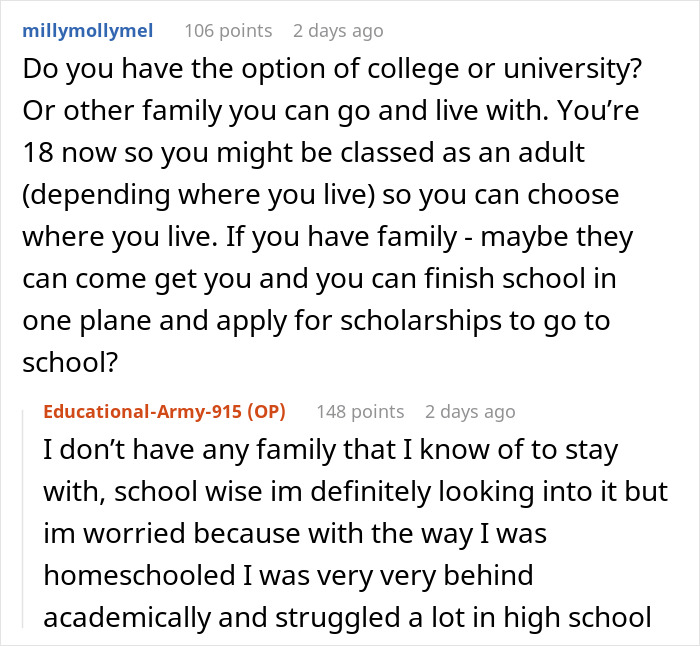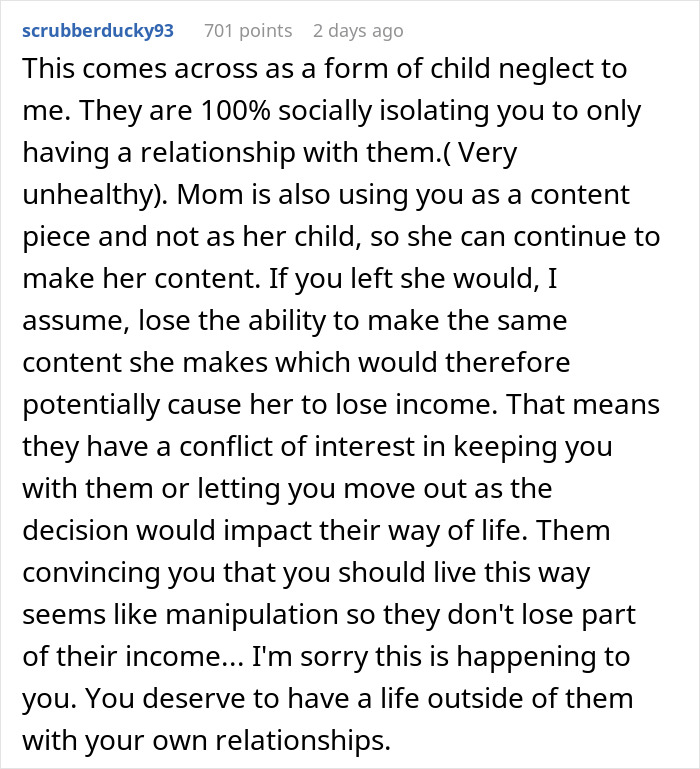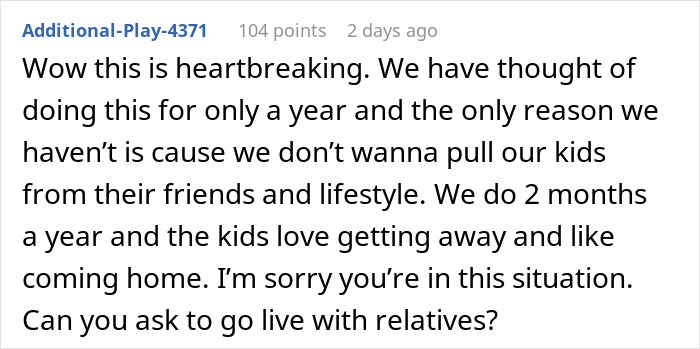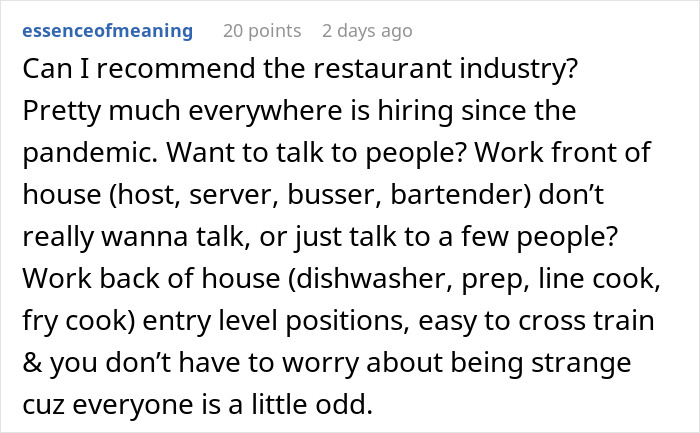Around 1 million Americans live in RVs (recreational vehicles) full-time. It allows people to have freedom, change locations and travel whenever they want, and save money on rent and bills. However, some aspects of constantly living on wheels are far from enjoyable, which this Reddit user exposed in her recent post.
The teenager writes that for the past eleven years she’s been a nomad, wandering through the US without a proper bed, education, friends, or opportunities for jobs. Such a decision was made early for her by her parents, whom she is now starting to resent. Looking to vent her frustrations and share the gruelling RV life, she turned to people online for guidance.
A lot of people choose to live in RV to travel freely and save some money

Image credits: Roadpass / unsplash (not the actual photo)
However, it has its own gruelling disadvantages too, which this teenager shared just recently
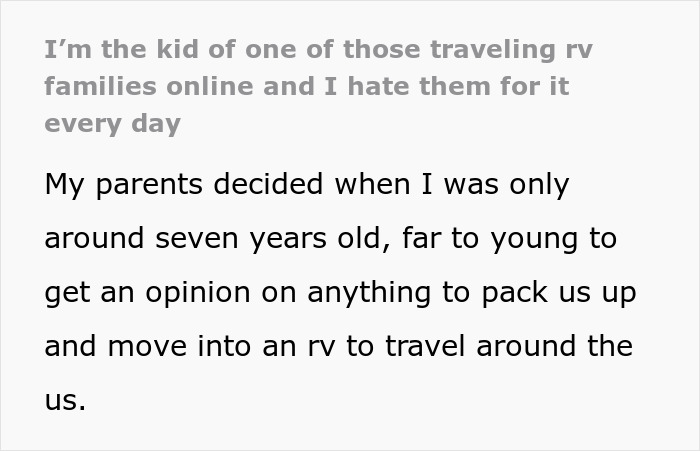





Image credits: Darina Belonogova / pexels (not the actual photo)







Image credits: BLACKDAY / envato (not the actual photo)

Image credits: Educational-Army-915
More than 77% of RVers aged 35-44 travel with children
A growing number of companies implementing remote work policies have opened up new opportunities for people who wish to travel and work on the road. With RV purchases already on the rise, restricted travel during the pandemic has encouraged purchases of such homes even more, increasing the number of Americans constantly living on wheels to 1 million.
The insurance company Progressive surveyed 501 Americans who live either full- or part-time in RVs and found that half of them are aged 18-44, and only 18% are 65 or older, showing a shift in the traditional nomad lifestyle. RVing no longer seems to be reserved for older couples who like to use their free time to cruise and travel the country.
Younger people have embraced such a life for a number of reasons, but the main ones are to explore the country and have adventures while working.
Surprisingly, more than 77% of RVers aged 35-44 travel with children. Since there’s more school options available than ever before, many families embrace such a challenge despite it being quite daunting. In the Progressive survey, it was found that most kids (49%) living in RVs take virtual classes, while about 31% stay close to home base so their children can attend school in person. Only 19% of children report being homeschooled.
Education for kids doesn’t seem to be a problem for most families. According to parents, kids have plenty of opportunities to learn while RVing. “There are opportunities for education everywhere when you live in an RV full time. Everywhere you look, there’s something to learn from geography and history to math, science, and reading. Every stop is a chance to have fun learning something,” writes Kay, aka The Mom Trotter, on her travel blog.
37% are unhappy with the lack of personal and storage space homes on wheels offer

Image credits: Hanson Lu / unsplash (not the actual photo)
On the other hand, the biggest concern families face while living on the road is finding good campground reservations, with most being booked a few months in advance. Driving, maneuvering and filling it up with gas are some other things RVers find challenging. Meanwhile, 37% are unhappy with the lack of personal and storage space homes on wheels offer.
Disconnection from family and friends can also make a nomad lifestyle more difficult. Not being able to rely on the people that are close to you can definitely take a toll on a person’s mental health.
“When you start a full-time adventure, you trade the familiar in for the unfamiliar, and many full-time RVers express frustration with the superficial interactions between RVers that are common in this lifestyle. You may actually get to know some other RVers, and you may even choose to travel with a group, but sooner or later the rally will break up, and either you or they will be onto another destination,” says author, writer, and full-time RVer Peggy Dent.
Of course, keeping in touch with family and friends can help, but it’s not really the same as face-to-face communication. Plus, holidays, family celebrations and small visits to grandparents are no longer part of a routine and being homesick may be a bigger issue than aspiring RVers may realize.
Traveling in an RV full-time may be a dream for many. However, it’s important to remember that such a decision doesn’t mean a person is taking a long life vacation, but making a choice that can have an imensive affect on adults and kids who are taken from their stable routine and thrown into the unknown of living on the road.
Readers felt for the author and even suggested ways to escape the RV life

